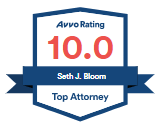Expungement Laws in Louisiana

A criminal record can have long-lasting consequences, affecting everything from employment opportunities to housing options. Fortunately, Louisiana’s expungement laws offer individuals a chance to clear their records and start anew. This blog provides an in-depth look at the expungement process in Louisiana, who is eligible, the steps involved, and the benefits of obtaining an expungement.
Understanding Expungement in Louisiana
Expungement is the legal process of sealing or erasing a criminal record from public view. While the record is not destroyed, it is no longer accessible to the general public, including potential employers, landlords, and educational institutions.
- What Expungement Does: Effectively hides your criminal record from most public searches, providing you with a “clean slate” in many aspects of life. However, the record can still be accessed by law enforcement and certain government agencies.
- What Expungement Does Not Do: It’s important to note that this process does not completely erase your record. Certain entities, such as law enforcement and licensing boards, may still have access to the sealed record.
Eligibility for Expungement
Not all criminal offenses are eligible for expungement in Louisiana. Understanding the eligibility criteria is crucial for determining whether you can pursue this avenue.
- Eligible Offenses: Generally, misdemeanors, certain felonies, and arrests that did not lead to a conviction may be eligible for expungement. However, violent crimes, sex offenses, and crimes involving minors are typically not eligible.
- Waiting Periods: Louisiana law imposes mandatory waiting periods before you can file. For misdemeanors, you must wait five years after completing your sentence, including any probation. For felonies, the waiting period is ten years.
- No Pending Charges: You must have no pending criminal charges to qualify. Additionally, all court fees and fines must be paid in full before you can apply.
The Process
The process of obtaining an expungement in Louisiana involves several steps, each of which must be followed carefully to ensure that your application is successful.
- Step 1: Obtain Your Criminal Record: The first step is to obtain a certified copy of your criminal record. This can be done through the Louisiana State Police or the Clerk of Court’s office in the parish where you were convicted.
- Step 2: File a Motion: You will need to file a Motion for Expungement with the court that handled your case. This motion must include detailed information about your conviction and the reasons you are seeking expungement.
- Step 3: Serve Notice: Once your motion is filed, you must serve notice to various agencies, including the District Attorney, the law enforcement agency that made the arrest, and any other relevant parties. This allows them the opportunity to object to your request.
- Step 4: Court Hearing: If no objections are filed, the court may grant your expungement without a hearing. However, if objections are raised, a hearing will be scheduled, and you may need to present your case before a judge.
- Step 5: Expungement Order: If the court grants your motion, an Order will be issued, directing all relevant agencies to seal your record.
The Costs and Financial Considerations of Expungement
Expungement in Louisiana is not free, and understanding the costs involved is crucial for those seeking to clear their records.
- Filing Fees: The cost of filing can vary depending on the nature of the crime and the parish in which the case was handled. On average, filing fees range from $500 to $700, which includes charges for processing by law enforcement and the courts.
- Attorney Fees: While it is possible to file without an attorney, many individuals choose to hire legal representation to ensure that the process is handled correctly. Attorney fees can vary widely based on the complexity of the case and the attorney’s experience, typically ranging from $1,000 to $3,000.
- Additional Costs: In some cases, additional costs may arise, such as fees for obtaining certified copies of court records, background checks, or other documentation required for the process.
Benefits of Expungement
Successfully expunging your record can have numerous benefits, both personal and professional.
- Employment Opportunities: One of the most significant benefits of expungement is the ability to pass background checks for employment. Many employers conduct background checks as part of the hiring process, and a criminal record can be a major obstacle to securing a job. With an expunged record, you can legally state that you have not been convicted of a crime in most situations.
- Housing and Loans: A criminal record can also impact your ability to rent an apartment or secure a mortgage. Landlords and lenders often conduct background checks, and an expunged record can improve your chances of being approved for housing or a loan.
- Peace of Mind: Provides individuals with a sense of closure and the opportunity to move forward without the burden of a criminal record. It allows individuals to fully reintegrate into society and pursue opportunities that may have been previously out of reach.
Challenges and Considerations in the Expungement Process
While the benefits are significant, the process can be challenging and may not be suitable for everyone. It is important to consider the following:
- Complexity of the Process: The expungement process involves navigating the legal system, filing detailed paperwork, and meeting strict deadlines. Mistakes in the application process can lead to delays or denial of your request.
- Eligibility Limitations: Not all offenses are eligible for expungement, and the waiting periods can be long. Additionally, certain convictions, such as those involving violence or sex offenses, are permanently ineligible under Louisiana law.
- Permanent Consequences: Even with an expunged record, certain consequences of a criminal conviction may remain. For example, an expunged conviction can still be used against you in future criminal proceedings, and some professional licenses may still be denied based on the underlying conviction.
The Role of Legal Assistance in the Expungement Process
Given the complexity of the process, seeking legal assistance is often beneficial. An experienced attorney can help you navigate the process, ensure that all paperwork is filed correctly, and represent you in court if necessary.
- Navigating the Legal System: An attorney with experience in expungement law can guide you through the process, helping you understand your eligibility, gather the necessary documents, and file your motion for expungement.
- Maximizing Your Chances of Success: Legal representation can increase your chances of a successful expungement, particularly if there are objections from the District Attorney or other parties.
- Peace of Mind: Knowing that a legal professional is handling your case can provide peace of mind and reduce the stress associated with the expungement process.
Expungement: A Valuable Opportunity
Expungement offers a valuable opportunity for individuals in Louisiana to clear their criminal records and move forward with their lives. While the process can be complex and costly, the benefits of expungement—such as improved employment prospects, access to housing, and peace of mind—are well worth the effort. If you are considering expungement, it is important to carefully assess your eligibility, understand the process, and seek legal assistance to ensure the best possible outcome. Bloom Legal Network is here to help guide you through the expungement process, providing the support and expertise you need to successfully clear your record.
Disclaimer: This content is for informational purposes and does not constitute legal advice. For personal legal guidance, please consult a qualified attorney.






